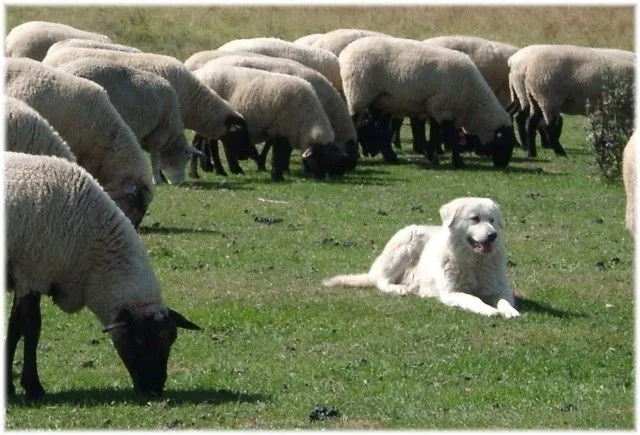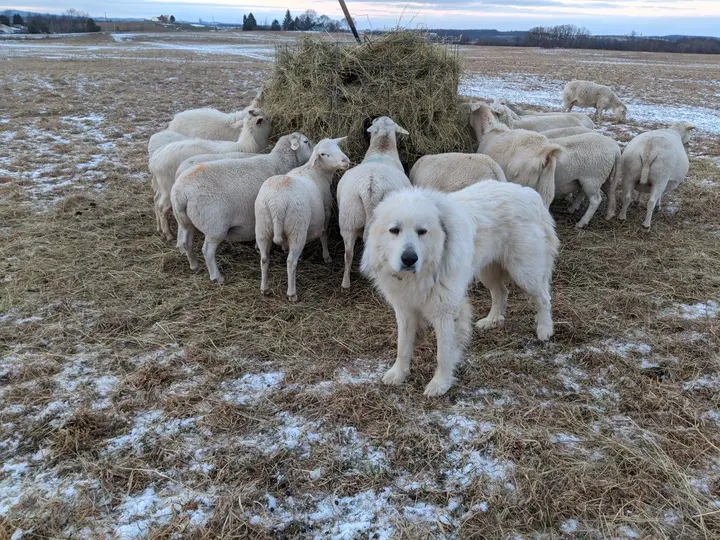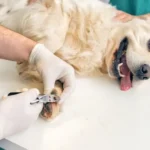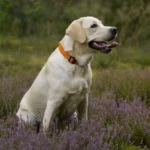In the rolling hills and vast prairies of the USA, a silent sentinel stands watch over flocks of sheep. These aren’t your average farm dogs they’re sheep guard dogs, the four-legged guardians that have become indispensable to American farmers. As predator populations grow and roam into new territories, these canine protectors have never been more crucial. Let’s dive into the world of these remarkable animals and discover why they’re the ultimate sheep protection against wolves and other threats.
What Makes a Dog a Sheep Guard?
Not just any pooch can cut it as a sheep guard dog. These animals are the result of centuries of selective breeding, honing instincts that make them perfect for the job. But what exactly sets them apart?
Bred for the Job: Top Sheep Guard Dog Breeds
When it comes to sheep protection, certain breeds stand head and shoulders above the rest. Here’s a rundown of the cream of the crop:
- Great Pyrenees: These gentle giants are a common sight on American farms. With their thick white coats, they blend in with the flock while packing a powerful protective punch.
- Anatolian Shepherd: Hailing from Turkey, these dogs are renowned for their strength and independence. They’re not afraid to take on wolves or any other predator threatening their flock.
- Maremma Sheepdog: This Italian breed has been guarding flocks for thousands of years. They’re known for their patience and ability to make split-second decisions.
- Komondor: With their unique corded coat, Komondors might look like giant mops, but they’re serious about their job. Their appearance alone can deter predators.
- Akbash: Another Turkish breed, the Akbash is prized for its speed and agility, crucial traits when a dog protects sheep from wolf attacks.
Characteristics of Effective Sheep Guard Dogs
What makes these breeds so good at their job? It’s a combination of physical and behavioral traits:
- Size and strength: Most sheep guard dogs are large breeds, capable of intimidating or fighting off predators if necessary.
- Protective instincts: These dogs are hardwired to guard. It’s not just a job; it’s their purpose.
- Independence: Unlike herding dogs, guard dogs must make decisions on their own, often working far from human supervision.
- Loyalty to the flock: Effective guard dogs bond with the sheep, considering them part of their “pack.”
“A good guard dog doesn’t just protect the flock; it becomes part of the flock,” says John Doe, a third-generation sheep farmer from Montana.
The Day-to-Day Life of a Sheep Guard Dog
Imagine being on call 24/7, always alert, always ready to spring into action. That’s the life of a sheep guard dog. Let’s break down what their daily routine looks like.
On Duty 24/7: A Dog’s Work is Never Done
The job of a sheep guard dog never stops. Here’s a typical day:
- Dawn patrol: As the sun rises, the dog makes its rounds, checking the perimeter for any signs of disturbance from the night.
- Midday vigilance: While the flock grazes, the dog keeps a watchful eye, often positioning itself on high ground for a better view.
- Dusk defense: As night falls and predators become more active, the dog becomes increasingly alert.
- Nighttime guardianship: Even in the dark, the dog’s keen senses are on high alert, ready to sound the alarm at the slightest threat.
Bonding with the Flock: More Than Just a Job
For sheep guard dogs, protecting the flock isn’t just work – it’s a calling. The bond between dog and sheep is crucial for effective protection. Here’s how it develops:
- Early socialization: Puppies are introduced to sheep at a young age, often as early as 4-5 weeks old.
- Supervised integration: Farmers carefully monitor the puppy’s interactions with the flock, encouraging protective behaviors and discouraging any rough play.
- Gradual responsibility: As the dog matures, it’s given more independence and responsibility in guarding the flock.
This bond is so strong that sheep often see their canine protectors as part of the flock, grazing and resting alongside them.
The Impact of Sheep Guard Dogs on American Farms
The introduction of sheep guard dogs has revolutionized livestock protection across the USA. Let’s crunch some numbers and see just how big of a difference these four-legged friends make.
Protecting Profits: The Economic Benefits
Sheep guard dogs aren’t just pets they’re investments that pay off big time for farmers. Check out these stats:
| Method | Annual Cost | Livestock Loss Reduction |
|---|---|---|
| Guard Dogs | $1,000 – $2,000 | 70% – 100% |
| Fencing | $3,000 – $5,000 | 40% – 60% |
| Shepherds | $30,000 – $50,000 | 80% – 95% |
As you can see, guard dogs offer the best bang for the buck when it comes to sheep protection.
Environmental Warriors: A Natural Approach to Predator Control
Beyond the economic benefits, sheep guard dogs offer an environmentally friendly alternative to traditional predator control methods. Here’s why:
- Reduced use of lethal control: Farmers using guard dogs report significantly lower need for trapping or shooting predators.
- Ecosystem balance: By deterring rather than eliminating predators, guard dogs help maintain the natural balance of local ecosystems.
- Coexistence model: The use of guard dogs demonstrates that livestock and predators can coexist with proper management.
Challenges and Considerations for Sheep Farmers
While sheep guard dogs are incredibly effective, they’re not a one-size-fits-all solution. Farmers need to carefully consider their specific needs and circumstances.
Choosing the Right Guard Dog for Your Farm
Selecting the perfect guard dog breed depends on several factors:
- Flock size: Larger flocks may require multiple dogs or breeds known for covering more ground.
- Predator types: Different breeds may be better suited for specific predators. For instance, if your main concern is “dog protects sheep from wolf,” you might opt for a larger, more aggressive breed.
- Climate: Some breeds are better suited for cold weather, while others thrive in heat.
- Terrain: Mountainous areas might call for more agile breeds, while flat pastures allow for larger, slower dogs.
Training and Maintenance: It’s Not All Smooth Sailing
Bringing a guard dog into your operation isn’t a “set it and forget it” solution. It requires ongoing effort:
- Initial training: While these dogs have natural guarding instincts, they still need direction to channel these instincts properly.
- Health care: Regular vet check-ups, vaccinations, and preventative care are crucial to keep your dog in top guarding form.
- Feeding: These are large dogs doing a big job – they need high-quality nutrition to keep them going.
Case Study: The Turner Family Farm The Turner family in Idaho introduced two Anatolian Shepherds to their 500-head sheep operation in 2018. In the first year alone, they saw predator losses drop from 5% to less than 1%. “It was like night and day,” says Sarah Turner. “We used to lose sleep worrying about wolves. Now we rest easy knowing our dogs are on the job.”
The Future of Sheep Guarding in the USA
As our climate changes and predator populations shift, the role of sheep guard dogs is evolving. Here’s what the future might hold:
Adapting to New Threats: Climate Change and Predator Patterns
- Expanding predator territories: As wolves and other predators move into new areas, guard dogs may need to adapt to unfamiliar threats.
- Changing weather patterns: Extreme weather events may require breeds with greater adaptability and resilience.
Technology Meets Tradition: Integrating Modern Tools
While sheep guard dogs have been around for centuries, modern technology is enhancing their capabilities:
- GPS tracking collars: These allow farmers to monitor their dogs’ movements and ensure they’re covering the whole pasture.
- Drone support: Some farmers are experimenting with using drones to extend their dogs’ range of vision, especially in large or rugged pastures.
- Smart feeders: Automated feeding stations ensure working dogs get the nutrition they need, even far from the farmhouse.
Conclusion
From the vast ranches of Texas to the mountain pastures of Montana, sheep guard dogs have become an integral part of American agriculture. These canine heroes offer unparalleled sheep protection, standing vigilant against wolves and other predators. They’re not just pets or tools – they’re partners, working alongside farmers to ensure the safety and prosperity of our nation’s flocks.
As we face new challenges in farming and conservation, sheep guard dogs remind us that sometimes, the oldest solutions are still the best. By bridging the gap between livestock and wildlife, these remarkable animals show us a path forward where farming and nature can coexist in harmony.
FAQs
Q:What is the best guard dog for sheep?
A: Great Pyrenees, Anatolian Shepherd, and Maremma Sheepdog.
Q:What kind of dog controls sheep?
A:Belgian Malinois, German Shepherd Dogs and Briards.
Q:What is the best protection for sheep?
A:Donkeys, llamas, or guard dogs.











